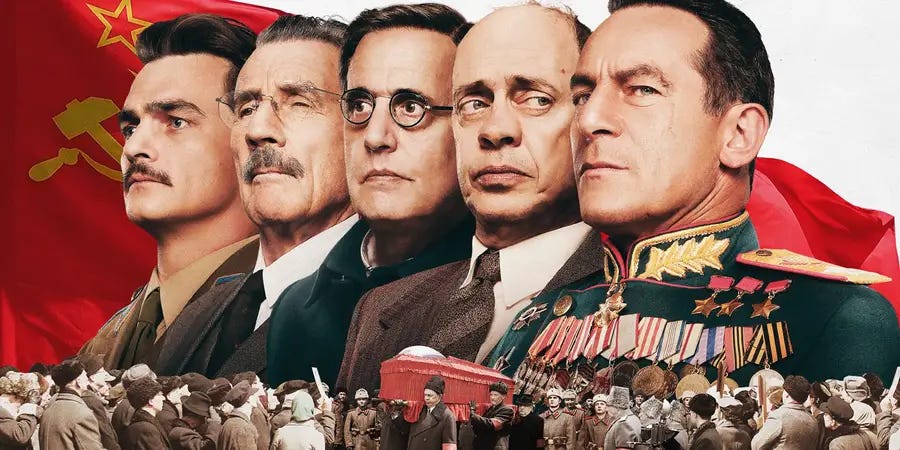Story by Armando Iannucci, David Schneider, and Ian Martin
Starring Steve Buscemi, Simon Russell Beale, and Jeffrey Tambor
Distributed by Entertainment One Films (U.S. distribution by IFC Films)
Rated R for language throughout, violence, and some sexual references
Running time 107 minutes
Author’s note: This review contains spoilers for The Death of Stalin.
C…




